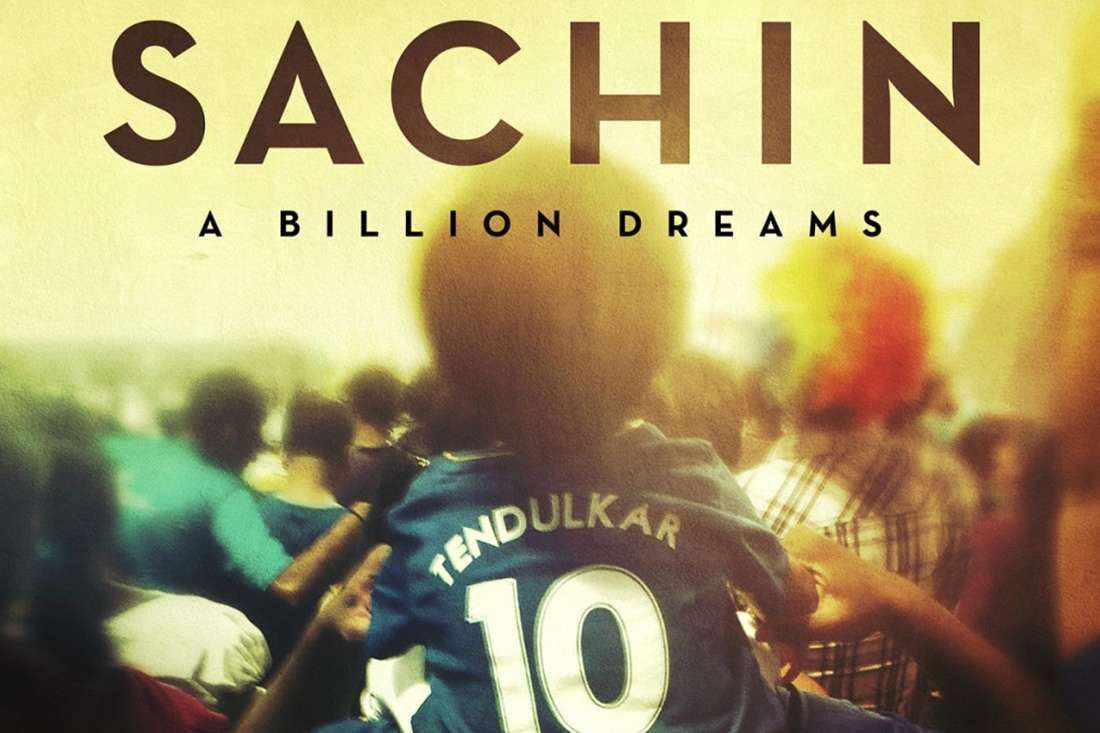
Sachin: A Billion Dreams

Sachin: A Billion Dreams
When a 16-year-old boy walked into a field in Karachi on a November afternoon in ’89, little did anyone know that in just a few years he would shoulder past the legends in the world of cricket, and define his own kind of genius. Sachin Tendulkar was a simple boy who had arrived with a simple dream – to bring the Cricket World Cup home again. Cricket was his religion, and to the nation he was nothing short of a god. As a sportsman on the field, he never revealed much – steel nerves and an unreadable face. Today, more than three years since his retirement, he returns to steal the show again. Sachin: A Billion Dreams promises to lift the veil and offer a look into the lesser known side of the man, the unmatched cricketer, the husband and the father.
Director James Erskine had always been intrigued by Sachin’s story. A lawyer-turned-filmmaker, James was drawn to sports and the idea of telling the stories of the men who shaped it. ‘In this day and age what unites a country more than it’s sports heroes? Sport uniquely crosses religious and language boundaries, and is both a reflection of our world and helps create it,’ he says. Over a conversation, James unfolds his relationship with filmmaking, what he found when he dug deeper into Sachin’s life, and why he just had to make this film.
What attracted you to filmmaking in the first place?
As a child I’d vaguely had the idea of being a director, but had no obvious route or idea or background in the arts. In fact, it was while I was studying Law at Oxford University that I first became interested in writing and directing. And each little film made me love the process more. The idea of telling a story in several dimensions, telling stories through an emotional medium was very compelling to me. And so my journey began as a filmmaker…
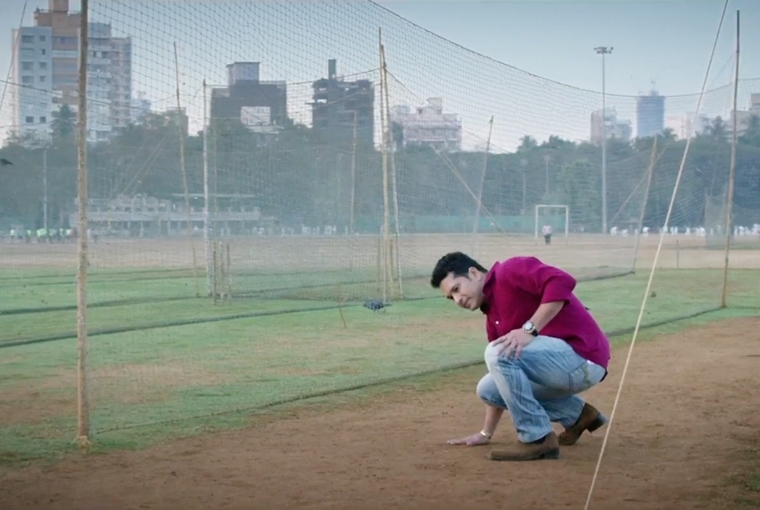
A still from the film
What inspired you to tell Sachin’s story?
I had made a film in 2011 called From the Ashes about Sir Ian Botham and the 1981 Test Series between England and Australia. After that, I’d become interested in making a film around the 1983 Indian World Cup winning team, and had in mind telling the story through the lens of a boy who was inspired by this to play for his country. So when Ravi, the film’s producer, first called me I had a strong affinity with Sachin’s own journey. As I dug deeper into Sachin’s story, I became amazed by the scale of it, and the idea of how he became a unique and iconic figure who somehow represented not only sporting excellence, but the story of India itself over the past 30 years.
How easy or difficult was it to separate the man from the enigma?
Everyone tells me Sachin is enigmatic, but for me he has revealed himself very happily. And this has allowed me to tell his real story, the story of the man behind the image. I guess being an outsider, I didn’t come with the same cultural baggage. So perhaps I was able to see him in a different light and thereby produce a more intimate portrait. That said, it took many months of discussion to get everyone comfortable with what I was trying to do, and that here was a man and his family, a very private group of individuals, sharing their private lives with the world.
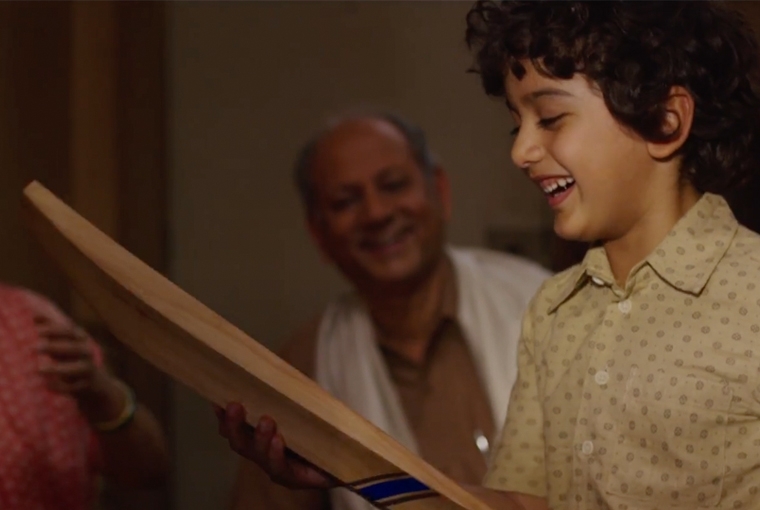
A still from the film
In order to bring complete honesty to the film, did you have to explore your personal relationship with cricket?
That’s a very clever question, but I don’t really have a clever answer.
Cricket itself is not a universal sport. What did the project demand of you to give it a global sensibility?
I’m not sure that any sport is universal. Soccer isn’t part of American culture, nor rugby Chinese. Cricket is massive - for 2.3 billion people - it’s their number one sport in their countries. But, yes, cricket is focused in certain cultures. I think what I brought to the project was not so much a global perspective on cricket (though being based in London I was perhaps able to gain a different perspective on Sachin and Indian cricket). I’d say what I brought more was experience in making films that really mixed media as this does, mixing drama, real life shooting, home movies, animation, and also I think that sensibility of making big screen movies around true stories.
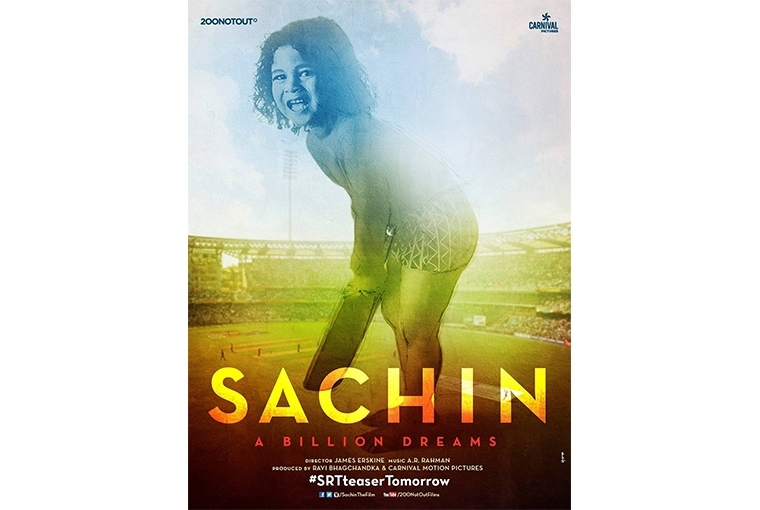
Through the entire journey, what was the one thing you learned about him that surprised you?
Gosh! That’s a tough question. I’ve travelled widely with him. His love of English rock music from the 1980’s would certainly be one. He’s very keen to share his iPod playlist!
How important is music for this film? How did A.R Rahman come on board?
Music is vital for all my films, and I always look to work with a sensitive composer who can recreate the emotions of a moment. Of course, no one is greater than A.R. Rahman! In fact, Rahman himself told me a funny story the other day about how he came into the film. He said that, over the years, many people had come to him asking to make music for a film about Sachin, but that Ravi Bhagchandka (the producer) was the first to actually have Sachin on board! Since then we have been talking during the whole production of the film about who is best to craft a score that can evolve over the 30 years or so that the film covers, so that the music moves delicately with time.
Over a few of your previous films, you’ve delved deep into the lives of some of the most celebrated sportsmen across the world. What about this genre intrigues you the most?
For a long time, sports was considered secondary as a cultural form and thus, I feel, was neglected. This has meant many great stories are to be unearthed, and in this day and age what unites a country more than it’s sports heroes? Sport uniquely crosses religious and language boundaries, and is both a reflection of our world and helps create it. The World Cup victory in 2011 for example is a 'Kennedy-moment', a moment when the whole country remembers where they were, what they were doing. Such an event becomes a milestone for us. I’m also interested in the notion of genius, and how sporting genius can be so apparent, where in the arts there is always debate.
Is this is the first time that a film brings you to India. What was your experience like working in our country?
Actually, I made a film for the BBC with Girish Karnad about fifteen years ago which explored the Bhagavad Gita and how it shaped Indian society, so I have worked here before. However, that film was made with a British and British-Asian audience in mind. It’s very different when you are trying to make a film about arguably the most cherished citizen of a country - for his countrymen. I want the film to live in the hearts of people, so figuring out how to reach into the Indian heart as well as the mind took time.
From a practical standpoint, there is quite a lot of cultural difference in approach to filmmaking and terminology, so that was something of a learning experience. That and the tendency of Indians, at least from those I’ve observed in the film industry, to leave everything to the last minute!
What’s next for you?
A holiday! Actually, I have two other films coming out in the next few weeks. An Amazon Original series called Le Mans: Racing is Everything which is due to launch globally on June 9th (including India) and a psychological thriller called The White Room which hits British cinemas around the same time!
I’m plotting a number of big screen and small screen projects about other sporting greats, as well a family movie about a cat! Really. I am.
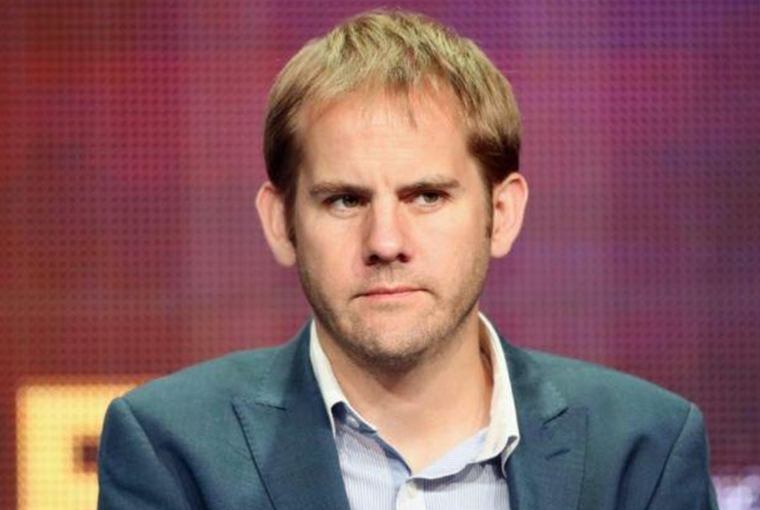
James Erskine
Catch Sachin: A Billion Dreams at the theatres this Friday, 26th of May.
Text Ritupriya Basu